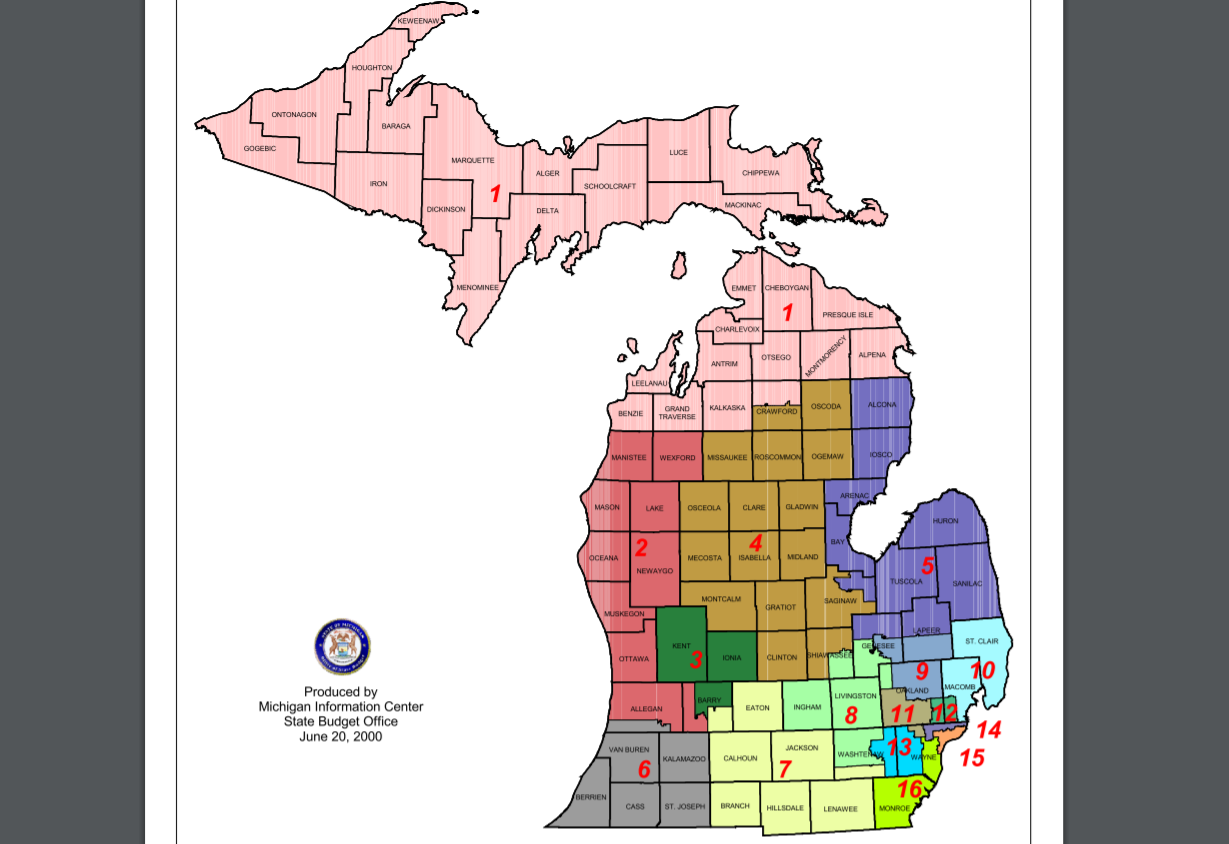How to Apply to Serve on Michigan’s New Redistricting Commission
Secretary of State Jocelyn Benson is asking Michiganders to be part of history and apply to help redraw Michigan’s political lines.

Applicants to Michigan’s new Independent Redistricting Commission will have the chance to be a part of Michigan history – and redraw the state’s political district lines.
The application process is now open. You can start the application process here.
Michigan voters created the new commission last year by passing Proposal Two, the anti-gerrymandering ballot question that sought to end the practice of partisan state legislatures drawing Michigan’s political maps.
Michigan Secretary of State Jocelyn Benson is overseeing the process, and says it’s important not just to have a large number of people applying, but that the applications are representative of the state’s population.
“Really, my goal is not just quantity but also representation throughout the state,” said Benson, “making sure than citizens from every corner of the state from the Upper Peninsula to Hillsdale to Grand Rapids to Detroit feel that they want to apply and be a part of this.”
Click on the player above to hear MichMash break down the selection process.
Who can apply and serve?
There are a few restrictions when it comes to who can serve on the new redistricting commission.
You must be an eligible and registered voter, which means you must also be at least 18 years old to serve.
In the last six years, you cannot have been:
- A declared candidate for partisan office on the local, state.
- An elected official to partisan federal, state, or local office.
- An officer or member of the governing body of a national, state, or local political party.
- A paid consultant or employee of a federal, state, or local elected official or political candidate, of a federal, state, or local political candidate’s campaign, or of a political action committee
- An employee of the legislature.
- Any person who is registered as a lobbyist agent with the Michigan bureau of elections, or any employee of such person.
- An unclassified state employee who is exempt from classification in state civil service pursuant to article XI, section 5 of the Michigan Constitution, except for employees of courts of record, employees of the state institutions of higher education, and persons in the armed forces of the state.
You can also not be a parent, stepparent, child, stepchild, or spouse of any individual disqualified under those restrictions listed above.
Finally, you cannot be otherwise disqualified for appointed or elected office by the state constitution.
If you’re not disqualified under any of those categories, you’re in good shape to apply.
What you don’t need to apply is any specific background, education, or experience. Other than those disqualifying factors above, the state is really looking for anyone and everyone to apply. Your résumé is not important if you’re a registered voter without those kinds of political ties.
Learn more about eligibility requirements here
How will the commissioners be selected?
The state will accept applications until June 1, 2020. At that point, an independent accounting firm will randomly select 200 people from the pool of applications. The firm will also post their methodology for randomly selecting those people online for the sake of transparency.
Of those 200, up to 20 can be struck from the process by the state Legislature’s majority and minority leaders. Each party’s leaders in the state House and Senate can get rid of up to five people from the process.
Of that group, 13 people will be randomly selected to serve on the commission, which will be made up of four Republicans, four Democrats, and five independents.
What else do you need to know before applying?
You will need to have your application notarized. The Michigan Secretary of State’s office says it has notary publics available at all branch offices across the state notarizing applications for free.
If you end up serving on the commission, you get compensated for your work. Commissioners will be paid $40,000.
Even if you don’t seek out an application to serve on the commission, there’s a chance you might get an application sent to your mailbox. Benson says she’ll be sending out “quite a few” applications randomly across the state.
